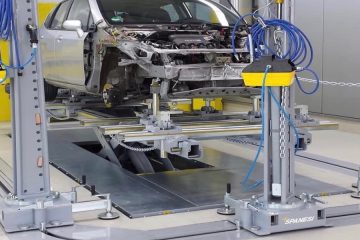Fleet Vehicle Maintenance: Why Floor Pans Shouldn’t Be Overlooked

In commercial vehicle fleets, every component plays a part in ensuring reliability, safety, and longevity. Among these, the floor pan—often overlooked—is essential for maintaining structural integrity and protecting critical underbody systems. Floor pans act as the foundation of the vehicle’s chassis, providing support to suspension mounts and serving as a barrier against road debris, moisture, and corrosive elements. Given the demanding conditions fleet vehicles face, including long hours on the road and exposure to harsh environments, the health of the floor pan directly impacts vehicle performance and safety.
How Neglecting Floor Pans Can Lead to Costly Downtime
Fleet operators often prioritize engine and brake maintenance, sometimes neglecting the undercarriage. However, compromised floor pans can lead to serious issues like corrosion, holes, and structural weakening. This damage not only jeopardizes the vehicle’s frame but also opens the door for moisture intrusion, which can cause electrical malfunctions and accelerate rust in other components. When floor pan problems go unnoticed, they can lead to unexpected breakdowns and costly downtime—both of which disrupt fleet schedules and increase operational expenses. Going for the Auto Repair in Orangevale, CA baed service would be excellent here.
Preventive Maintenance Strategies for Floor Pan Health
Incorporating floor pan inspections into routine fleet maintenance schedules is vital for early detection and prevention of damage. Technicians trained in commercial vehicle service can identify corrosion, rust spots, or physical damage during undercarriage evaluations. Applying rust inhibitors, seam sealers, and protective undercoatings as preventive measures can significantly extend the floor pan’s lifespan. Regular cleaning to remove salt, dirt, and debris, especially in fleets operating in coastal or snowy regions, also helps mitigate corrosion risks. These proactive steps help maintain vehicle safety and reduce long-term repair costs.
The Impact on Fleet Safety and Regulatory Compliance
Maintaining floor pan integrity is not just about vehicle longevity—it also plays a critical role in meeting safety standards and regulatory requirements. Damaged floor pans can compromise chassis rigidity and affect the proper functioning of suspension and braking systems, increasing accident risk. Fleet vehicles must pass safety inspections to comply with local and federal regulations, and underbody corrosion or damage can result in failed inspections or fines. Keeping floor pans in good condition ensures fleet vehicles remain compliant and safe for daily operation, protecting drivers and cargo alike.
Cost-Effectiveness of Professional Floor Pan Repair and Replacement
When damage is detected, professional repair or replacement of floor pans is a cost-effective investment for fleet operators. Skilled technicians use specialized tools and techniques to restore structural integrity while applying corrosion-resistant coatings to prevent recurrence. Prompt repairs reduce the risk of extensive damage spreading to other chassis components, preserving overall vehicle value. For fleets, minimizing unexpected repairs through scheduled maintenance and certified floor pan work translates to better uptime, fewer emergency expenses, and enhanced return on investment.
Final Thoughts
Floor pans are a foundational yet frequently overlooked aspect of fleet vehicle maintenance. Neglecting their condition can lead to costly breakdowns, safety issues, and regulatory complications. By integrating regular floor pan inspections and preventive treatments into fleet care routines, operators can protect their investments, improve vehicle reliability, and ensure safer roads for their drivers.





